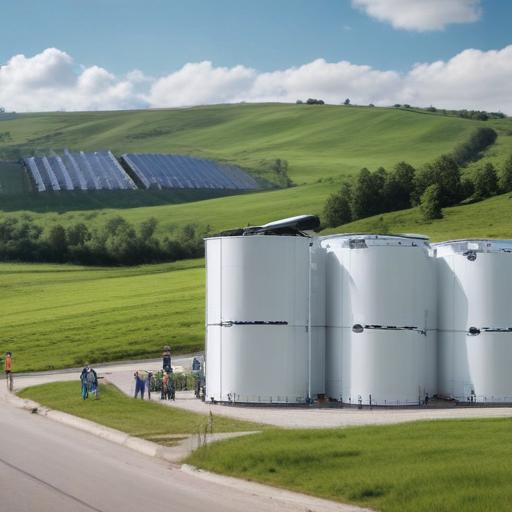Virginia Governor Glenn Youngkin recently vetoed two significant energy bills aimed at enhancing the state’s energy storage capabilities. The proposed legislation, identified as SB1394 and HB2537, would have obligated utilities within Virginia to invest in both short- and long-duration energy storage systems. Specifically, the bills called for Appalachian Power to establish at least 780 MW of short-duration and 520 MW of long-duration energy storage by 2040 and 2045, respectively. Dominion Energy Virginia was expected to invest in even larger capacity goals of 5,220 MW of short-duration and 3,480 MW of long-duration by 2045.
In his veto explanations, Youngkin articulated his commitment to a free-market approach to energy and expressed his concerns regarding the existing Virginia Clean Economy Act. He criticized the law, which was enacted in 2020 with a focus on a Renewable Portfolio Standard (RPS), asserting that it has not served Virginians effectively. Youngkin contended that the additional mandates for energy storage would not rectify the shortcomings of the VCEA and labeled long-duration energy storage as a costly technology. He asserted that if utilities genuinely believed such technologies were essential for demand management, they would pursue necessary permissions to implement them.
This decision illustrates the ongoing debate in Virginia around energy policy and the balance between regulatory frameworks and market-driven solutions. While Youngkin’s administration maintains a focus on reducing regulatory burdens, opponents argue that proactive energy strategies are necessary to address future demand and foster sustainable energy innovation.
The veto highlights the complexities of energy policy and its implications for sustainable growth and innovation, as well as the need for ongoing discussions about how best to manage energy resources in Virginia and beyond.
